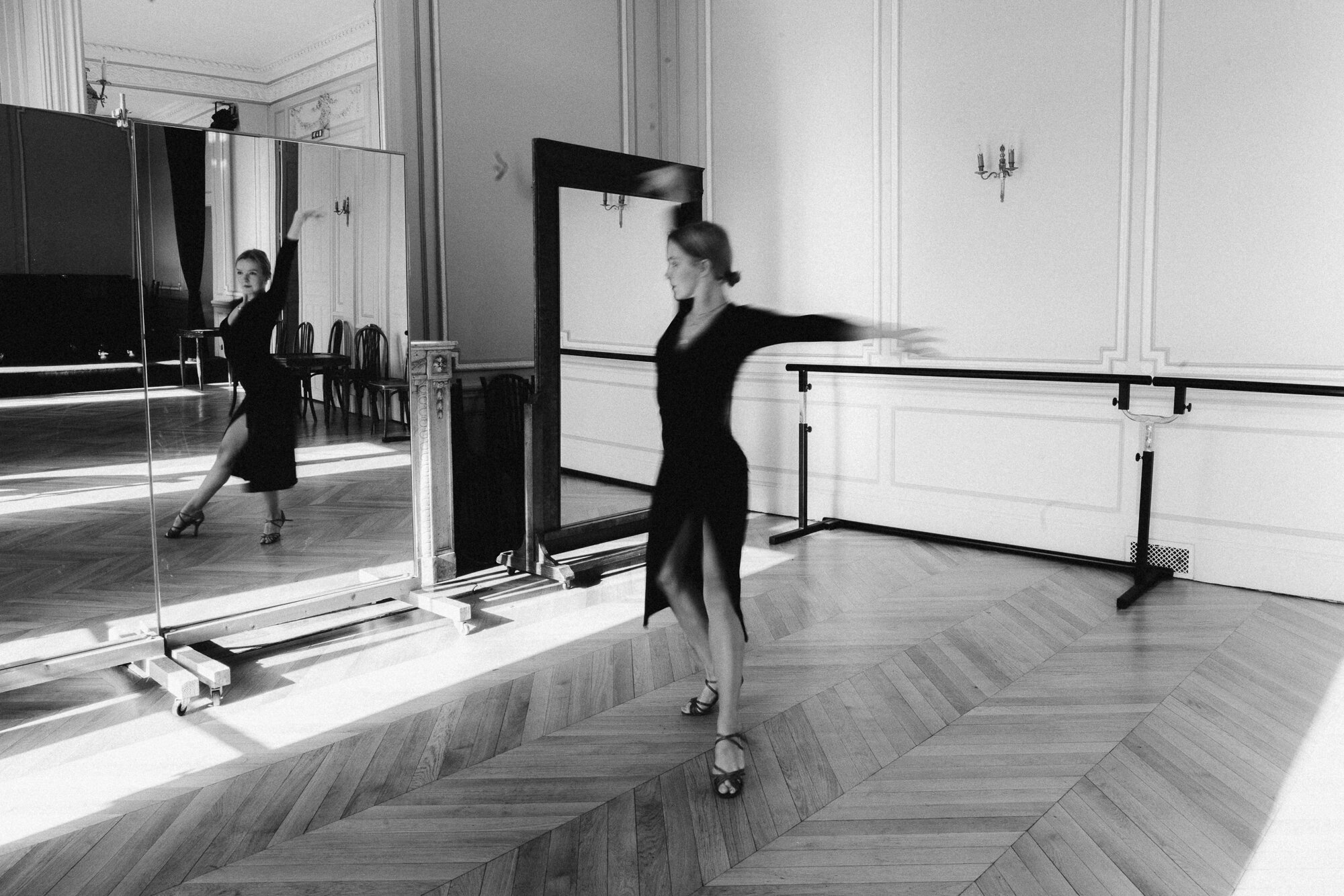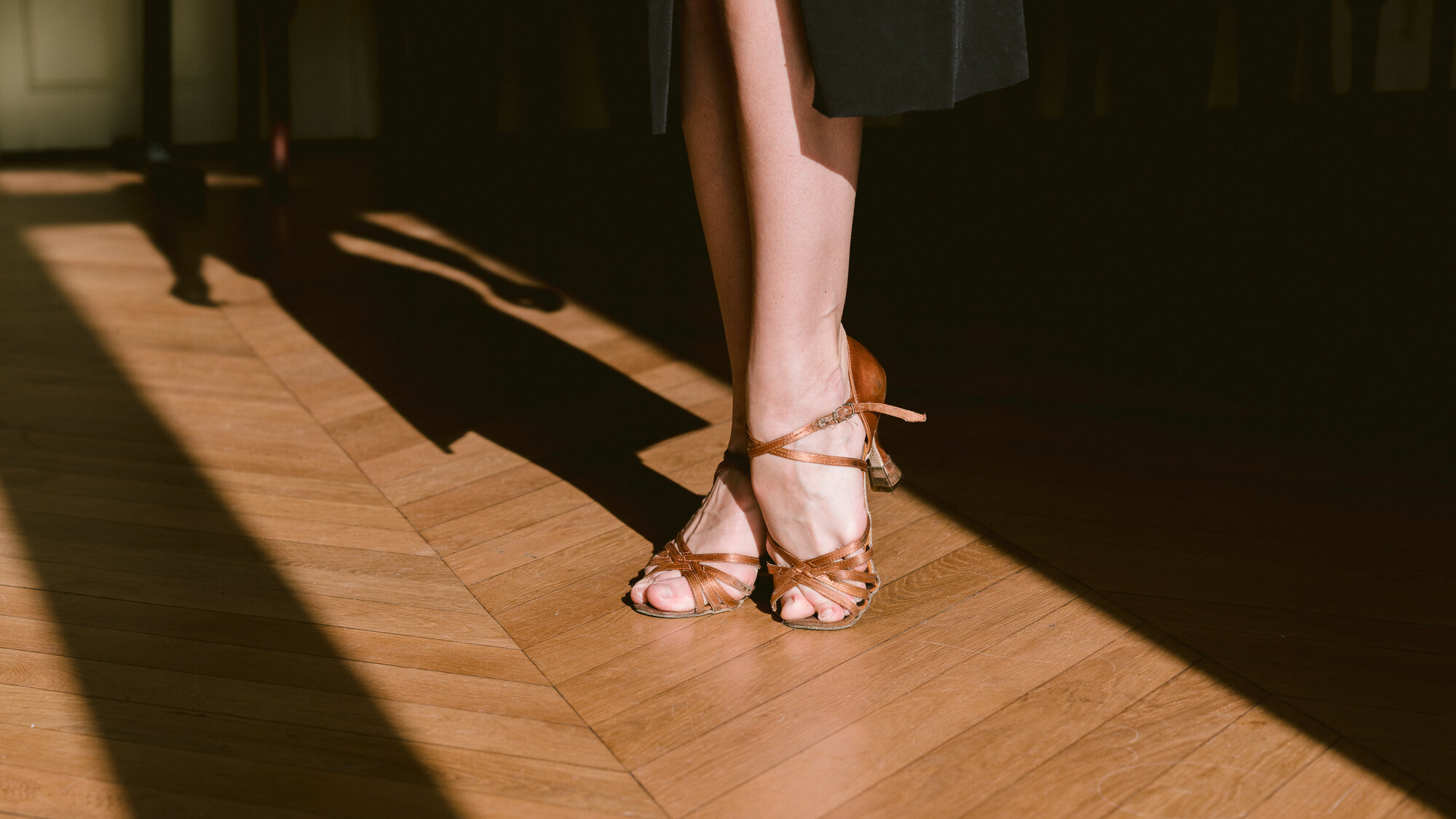Sofia invited me to her dance class at Sergei Rachmaninov Conservatory. As I love dancing I was happy to join. The class was full of positive vibes and good energy. We talked with Sofia about the role of dancing in her life and how it all started.
Tell me please how you got into dancing?
At the age of 6 my parents enrolled me in the school of the Olympic reserve in artistic gymnastics. My mother always accompanied me to classes and tournaments, but once my dad came to see one of the competitions. Among the participants there were girls much older than me - 15-17 years old. Dad looked at their specific figures (broad shoulders and wide backs) and asked if his daughter was expecting such a transformation over time. When he received an affirmative answer, he demanded to transfer me to “gentle sport”. So my parents decided to change my classes in gymnastics to ballroom dancing.
After the first competition, where I saw adult dancers in beautiful ball dresses gracefully raising to the podium, I got a dream to become a real dancer.
What dance means to you? What role does it play in your life?
For a very long time, I saw dance only as athletic goals and the achievements. Endless training was a way to become stronger than your rivals, to rise higher in results and classification. This vision of dancing took 12 years of my life, helped me develop endurance, discipline, strength of character and the habit of never giving up.
And only after moving to France, when my environment, goals and way of life changed, I began to see dance in a different light. Now it is primarily a pleasure: getting ready for training, moving your body to favorite music, expressing your emotions without words, interacting with a partner. This is no longer about the race for results, but about creativity and self-expression.
And recently it has also became my full time profession. I’m so thankful to myself for taking the risk and starting from scratch in Paris.
What is the most difficult part in teaching others how to dance?
I would say it is students' perfectionism and impatience with themselves. Sometimes it’s hard to see a girl get upset or angry when she’s unable to dance a particular movement, or if it doesn’t look “perfect” to her. I always try to find the right words to show the beauty of the learning process and the magic of training - today nothing turns out, tomorrow it turns out awkwardly, and a week later we already forget that we had some difficulties before. It is important to enjoy every moment of the class and be patient with your body.
Can anyone learn to dance?
Absolutely everyone! The main things are the intention to learn dancing, patience, the ability to listen and hear your body. And a lot of hard work if we are talking about achieving some specific sports goals.
Please share with me your favorite dance music.
I have a lot of favorite singers and compositions, depending on the dance, but they have one thing in common - they are all in Spanish or Portuguese.
Rumba that gives me goosebumps: José Feliciano Cuando pienso en ti
Favorite Samba: Kaoma Danca Tago Mago
Cha-cha-cha: Miguel Sàez Mala mujer
Jive: Elvis Presley All shook up.
Where are you from and how did you end up in Paris?
I was born and raised in St. Petersburg. At the age of 9, I started to learn French because my dad was studying it at that time. In general, French culture has been present in my life since childhood: love for French language, my first trip abroad at the age of 8 was to Paris, and I literally grew up watching films with Louis de Funes, Pierre Richard, Jean Renault and listening to the music of Joe Dassin.
After university I dreamed of going to live abroad for a short time (I was choosing between Europe and Latin America). For family reasons, the trip to Argentina on the volunteer program did not happen, but a week later, thanks to my friend, I learned about the « vacances & travail » program in France. Straight after passing state exams and getting my diploma, I took a one-way ticket to Paris with two of my friends.
After the end of one year visa, I returned to St. Petersburg, where I had to « return to normal life ». Only then I realised that my « normal life » was in Paris. 2 weeks later, I registered on the au-pair program and a couple of days later I signed a contract to get back to Paris.
I understood that I want to stay in Paris so I passed the French TCF exam, entered the university and found my first part-time job.
What are your favorite places in Paris?
It’s definitely Place de la Republique and canal Saint Martin. I fell in love with this place immediately for its unique atmosphere and the melting pot audience. This is not a typical Paris - it’s some kind of crazy mix of cultures, styles, moods. My favorite cafes and bakeries are located right here: for me the best thing to do is to have coffee and a bun take away and read a book by the canal.
I love the Boulinier bookstore on Bonne Nouvelle - I can spend over an hour there choosing books, and every time I leave with a full bag!
And since this January, Sergei Rachmaninov Conservatory next to the Alma Bridge with its inspiring energy, wonderful people, breathtaking views from the windows and a Russian restaurant. Getting here, I am transferred to my St Petersburg, which I miss a lot.
Solo Latina & Ballroom dance by Sofia: @ballroom.dance.paris
Photography & Interview by Alina Sepp












